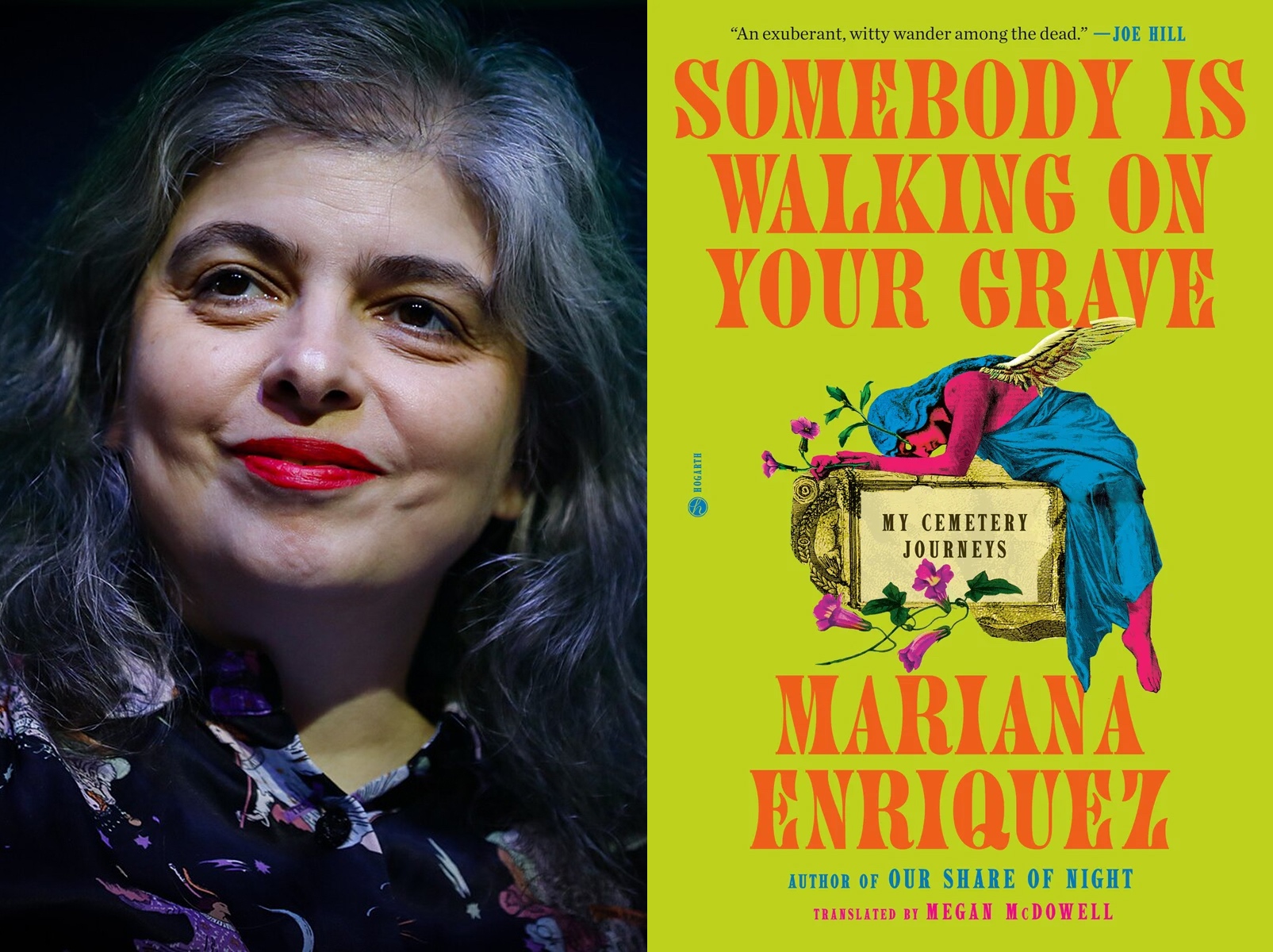- New Arrivals
Fiction
- Historical FictionCrime & ThrillersMysteryScience-FictionFantasyPoetryRomanceChildren’s BooksYoung Adult
- Biographies & MemoirsHistoryCurrent AffairsTech & ScienceBusinessSelf-DevelopmentTravelThe ArtsFood & WineReligion & SpiritualitySportsHumor
Children’s Books
Lists
Blog
Gift Cards
My Lists
Games
The co-op bookstore for avid readers
Read Your Way Through Mariana Enríquez
Mariana Enríquez has emerged as one of the most distinctive literary voices from Latin America in the 21st century, revitalizing the Gothic and horror traditions through the lens of Argentina’s turbulent history and stark social realities. Her work often unfolds in landscapes marked by dictatorship, poverty, addiction, and urban decay, but she renders these settings through a sensibility attuned to the uncanny, where ghost stories and folk rituals mingle seamlessly with political trauma.
Enriquez’s fiction has been hailed for extending the Argentine literary tradition of Borges, Cortázar, and Piglia into darker and more visceral territory, while also aligning her with the global renaissance of horror as a vehicle for cultural critique. In celebration of the release of her first work of nonfiction, we've put together a survey of Enríquez's books, tracing how her work moves from early realist explorations to the haunting, politically charged Gothic for which she has become internationally renowned.
Somebody Is Walking on Your Grave: My Cemetery Journeys
Out now: A first work of nonfiction from one of the world’s great horror writers
In this collection of nonfiction essays, Argentina’s “sorceress of horror,” turns her gaze towards some of the world’s iconic cemeteries. Blending travelogue, memoir, and cultural history, Enríquez leads readers through Paris’s catacombs, Prague’s Jewish Cemetery, Buenos Aires’s Recoleta, and beyond. Equal parts spooky and life-affirming, this first work of nonfiction reveals how cemeteries hold not just the dead, but the beauty, grief, and strange vitality of the living.
The Los Angeles Times’ Paula Woods wrote, "Enríquez’s luminous prose (translated by McDowell) and innate curiosity about cemetery folklore, histories and final resting places of the famous and obscure could make thanatophiles of us all."
A Sunny Place for Shady People: Stories
A Bram Stoker Award and World Fantasy Award finalist
“Feels as vivid and essential as Kafka’s tales. Considered by many to be a Nobel contender, Enríquez is surely on a path to Stockholm," wrote the Star Tribune’s Hamilton Cain in his review of this story collection which once again intertwines the eerie and supernatural with everyday violence. The stories feature cults, haunted landscapes, and rituals, but also the harsh social realities of Argentina’s marginalized populations. It continues Enríquez’s ongoing commitment to horror as a mode for exposing hidden histories and collective fears.
Our Share of Night
Named one of Reactor Magazine's Most Iconic Speculative Fiction Books of the 21st Century
Called "a masterpiece of supernatural horror" by the Washington Post and a "once-in-a-lifetime reading experience" by the New York Times, Enríquez’s magnum opus, follows Gaspar and his father Juan, who flee across Argentina while bound to a secret occult society known as “the Order.” Mixing family saga, political allegory, and cosmic horror, the novel shifts between dictatorship-era Argentina and the democratic transition, exploring the dictatorship’s lingering violence, and the costs of resisting authoritarian power. Drawing on traditions from Lovecraft and Latin American magical realism, Enríquez crafts a tale where horror becomes inseparable from history. Widely considered her masterpiece, it won the Premio Herralde de Novela and solidified her global reputation.
Things We Lost in the Fire
Named a Best Book of the Year by: The Boston Globe, PASTE Magazine, and more
This landmark short story collection cemented Enríquez’s reputation as a master of horror. The stories depict urban poverty, domestic violence, street children, and Argentina’s legacy of dictatorship, but refracted through disturbing supernatural imagery—burned women forming a cult, children disappearing into sewers, houses infected with malevolence. The prose often shifts into a collective voice that amplifies the stories’ social resonance. The book was both a literary and political event, showing how horror could illuminate the violence already embedded in everyday Argentine life.
The Financial Times said, "Enríquez's particular gift is to intuit that horror and ghost stories - ancient genres, as old as humanity itself - might make better gateways into a country's past than straightforward narrative.”
The Dangers of Smoking in Bed
A finalist for the International Booker and Kirkus Prizes
This collection introduced Enríquez to the English-language world, and marked her full embrace of the Gothic and horror mode. Ghosts of dead children, cursed objects, and urban legends populate narratives that are as much about Buenos Aires’s shantytowns, poverty, and trauma as they are about the supernatural. With these stories, Enriquez reinvented the short story as a vehicle for contemporary terror.
Nobel Prize winner Kazuo Ishiguro produced a glowing endorsement for this collection, writing, ”The beautiful, horrible world of Mariana Enríquez, as glimpsed in The Dangers of Smoking in Bed, with its disturbed adolescents, ghosts, decaying ghouls, the sad and angry homeless of modern Argentina, is the most exciting discovery I've made in fiction for some time."

